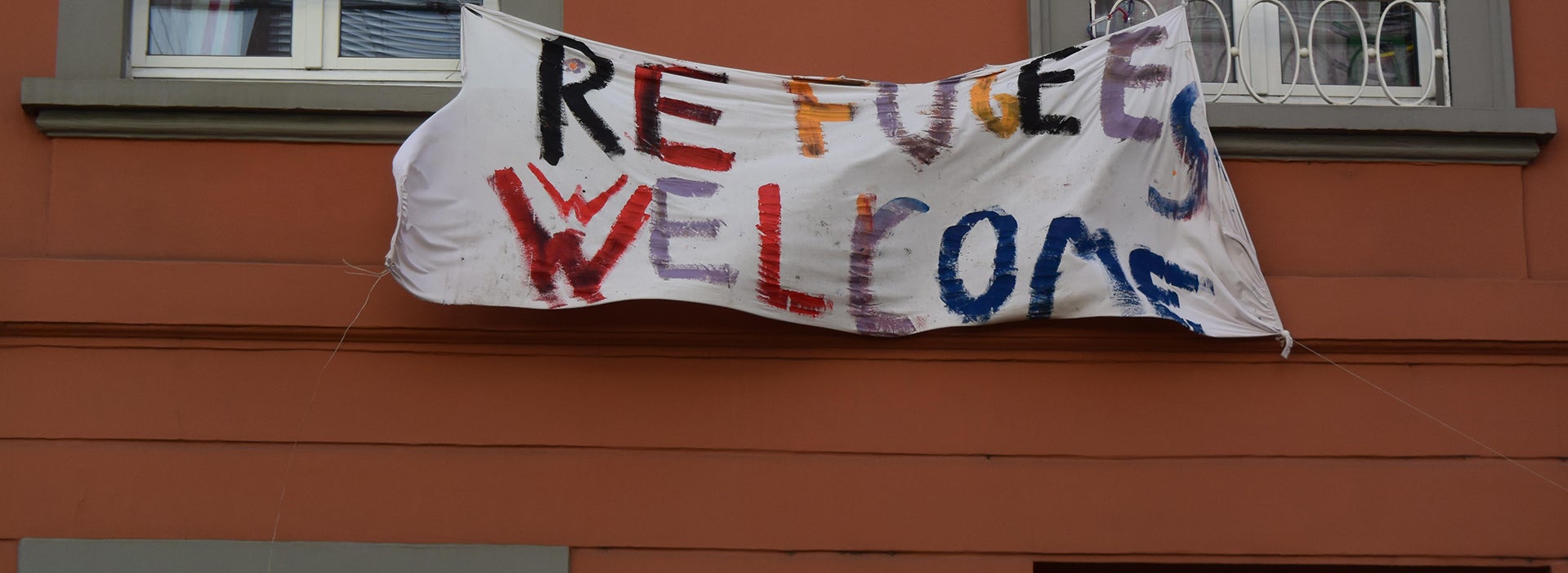Time to control migration
When refugees come to Europe, they have to go through an asylum procedure that takes a long time. According to Martijn Stronks. “When they are then finally granted a residence permit, they have the right to have family members come over within three months.” Since last summer, however, government parties have wanted to restrict that right, resulting in refugees having to wait even longer to reunite with their partner or children. Discussions about this eventually led to the fall of the fourth Rutte cabinet.
The example of family reunification is illustrative of the way the government uses time to exercise power, according to the legal philosopher. “Last year, status holders already had to wait longer than usual before they were even allowed to apply for family reunification.” This led to protesting, including internally within ministries. “Even civil servants who worked for ministers protested against this. The state secretary eventually asked the court to rule on whether the longer waiting period was within the rules.” After six months, the judge ruled that this right should not be restricted by making people wait longer. That is six months of wasted time, says Stronks. “It was clear beforehand that this was not allowed, but the minister used the time it takes for a judge to hand down justice to make refugees wait longer. That is time people could have spent with their families. A few years without your child or partner is an irreparable loss in a person’s life. An understanding of the damage caused by waiting only comes when you can look at it in a human way.”
Circumventing rules
Political parties trying to circumvent European rules regarding refugees is not a new phenomenon, according to Stronks. “I have been working in migration law for 15 years and by now I am not surprised to see parties openly trying to get out from under rules and treaties. PVV, JA21 and even the VVD no longer want to abide by European and international refugee rules. They have explicitly said that they want people to wait longer for their family members, or preferably that they not come at all.” That longer wait for family reunification would also aim to make the Netherlands less attractive to asylum seekers, resulting in a decrease in the influx. Stronks explains, “Politicians talk about the ‘pull factor’ of Dutch rules and reception facilities, but there is no scientific evidence for this.”
Dehumanisation based on numbers
It is not the alleged high influx of refugees but rather failed policies that are the cause of the asylum crisis, Stronks stresses. Measures such as cutting budgets, closing asylum seeker centres due to a reduced influx, and laying off staff there have not done the situation any favours, he says. “Political parties like to shout that there is a crisis, but in reality, the problems related to asylum and migration are the result of bad policy. Several independent advisory bodies have also noted this. It is policy that, ultimately, is based entirely on numbers, fluctuations and forecasts, resulting in dehumanisation.” Stronks calls it the politics of numbers. But those numbers, he says, distort and oversimplify reality and do not do justice to the human lives they are based on. “Of the total number of people coming to the Netherlands, only 11% are asylum seekers, yet this is where all the attention is focused in the political discussion. Parties in the government never talk about affluent migrants, such as EU citizens, expats and other labour migrants, who account for the largest share of that influx.”
Movement inequality
Wealthy Europeans, meanwhile, are moving around the world increasingly faster, while poorer people from other continents are restricted in their movement. The scientist explains, “The EU wants to make agreements with even the most criminal countries and regimes to stop migration. At the same time, Europeans travel everywhere. With our European passport, you and I are allowed to travel all over the world, while someone from, say, Somalia, cannot do that so easily. We are investing more and more in facilitating our own mobility, while at the same time making it harder for other, less affluent people to move around.”
“People in Europe get nervous when their mobility is suddenly restricted. During the coronavirus crisis, we were not allowed to travel and our data was linked to all sorts of databases to enforce this. Exactly the same freedom-restricting tools are being used to bring the people coming to Europe to a standstill.”
Want to read more about time and migration? Martijn Stronks recently published the book ‘Grasping Legal Time’.



